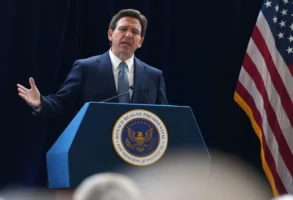
Published December 13, 2021
I can’t think of a more encouraging development than the national movement of parents pushing back against woke education. Nothing can beat parents organized to halt the erosion of core American ideals like freedom of expression or equality before the law. Thankfully, a record of early successes is rapidly building a larger movement to take back our schools.
Yet a crusade on the rise always risks overreach. Lately, some parents and public officials fighting woke education have considered pulling books from the shelves of public-school libraries. That isn’t always inappropriate, even for strong defenders of free speech. Libraries serving K-12 students legitimately take criteria like age-appropriateness and community standards into account when it comes to explicit sexual material. Because those lines are notoriously difficult to draw, battles over sexually explicit school library books are sure to play out for years.
Bracketing the issue of age-appropriateness and explicit sexual content, however, I want to suggest that the best way to deal with woke school library books is not to ban them, but to balance them. If Ibram X. Kendi’s How to Be an Antiracist is on your school-library shelf, don’t ban it. Have your library buy a copy of John McWhorter’s Woke Racism: How a New Religion Has Betrayed Black America, instead. If your school library has a copy of Michelle Alexander’s The New Jim Crow: Mass Incarceration in the Age of Colorblindness, have it order a copy of Heather MacDonald’s The War on Cops: How the New Attack on Law and Order Makes Everyone Less Safe. And so on.
It’s true that a public K-12 school is not a public university. Public universities stock their libraries with books representing multiple points of view. They also grant professors freedom to conduct classes in their areas of expertise as they see fit. All this is on the theory that college students are old enough to choose their schools, their courses, and then decide for themselves the truth or falsity of the various perspectives they encounter. Public K-12 is different. Students are essentially a captive audience, and are young enough to be swayed by teachers who indoctrinate. That is why state laws barring certain content from K-12 teaching are permissible to begin with.
Nevertheless, preparing the young for mature citizenship means exposing them to contrasting perspectives. The pernicious new educational practice of “action civics” allows biased teachers to draft whole classes into after-school political protests for course credit. I’ve argued that instead of forcing students into one-sided after-school political advocacy, schools ought to return to the tradition of high-school debate. That’s where students learn to take both sides of current controversies, which builds respect for all. Ensuring that our K-12 libraries are stocked with books that offer arguments on both sides of our most controversial public-policy issues is very much in the spirit of high-school debate, and entirely appropriate to K-12.
This past weekend, the New York Times made much of a story out of Texas. In October, supposedly following up on the new Texas law barring teacher advocacy of critical race theory, a member of the Texas State House sent out a letter listing about 850 books. The letter called on K-12 schools to identify and review the books to see if they contained any “material that might make students feel discomfort, guilt, anguish, or any other form of psychological distress because of their race or sex.” Opponents of woke education ought to avoid this sort of overreach.
The legislator’s request was not justified by the new law (which was based, in part, on model legislation that I authored). In the first place, the new Texas civics law does not bar teaching that makes students feel uncomfortable because of their race or sex. That would give any offended student a curricular veto. Instead, the law bars teaching children that they should feel discomfort because of their race or sex, as CRT treatments of “Whiteness” often do, for example. Second, with one exception, the Texas law does not bar the presentation of any given concept. Instead, it prevents teachers from inculcating CRT-based ideas of collective racial guilt. In other words, CRT-based ideas can be discussed, so long as they are not taught as truth. So, for example, a comparison and contrast of Ibram X. Kendi’s CRT-based ideas with John McWhorter’s critique of CRT would be fine. That’s why having both books in the school library would make sense. (The Texas law rightly prevents teachers from “inculcating” the core claims of the 1619 Project, but then goes too far, in my view, by effectively barring even a discussion of the 1619 Project.)
In short, the new Texas civics law provides no basis whatever for mass recalls of library books. Even books that advocate the very CRT-based concepts barred by the law can still be used, if they are presented alongside contrasting perspectives, rather than presented as true.
Scattershot recalls of hundreds of library books, presumably under consideration for banning, is neither good policy nor good politics. Our woke elites are only too eager to paint parents pushing back at woke excess in our schools as intolerant book-burners. Why not turn the tables by reviewing school libraries for leftist advocacy books, then balancing them with a more conservative point of view? Keep leftist political books, then dare your opponents to ban the new conservative books you’ve ordered. I hope both sides hesitate to ban. The end result would be school libraries filled with both points of view — a big win, as far as I’m concerned.
No doubt, the children’s and young adult book markets are dominated by entries with a leftist bias. There are conservative alternatives, however. The Goldwater Institute recently held an event on a series of children’s books that fights back against the woke cultural trend. I’ve seen lists of conservative books for young adults as well. Some enterprising individuals and groups should put together a list of conservative, non-woke, or anti-woke books for children and young adults. Parents and school libraries could work from those lists.
This is largely unexplored territory. Are most school libraries filled with books like Kendi’s? I really don’t know. If your school library isn’t particularly political, I wouldn’t necessarily suggest rushing to stock it with conservative-leaning policy books. On the other hand, if your school’s civics teachers focus on current events, and have stuffed their school library’s shelves with woke tracts, let the balancing begin.
The new Texas civics law does say that civics teachers who choose to discuss controversial current events should strive to do so from “diverse and contending” perspectives. That isn’t a mandate for school libraries, but it certainly does offer a reason for school librarians to stock up on competing public-policy books. (And no, the Texas law’s provision calling for a balanced exploration of current public-policy debates does not mandate the teaching of Holocaust denial or flat Earthism.)
In short, it is legally unnecessary, substantively ill-advised, and politically foolish to ban woke school-library books. Setting aside the challenge of determining age-appropriate sexual content, don’t ban woke books, balance them.
Stanley Kurtz is a senior fellow at the Ethics and Public Policy Center.
Photo by Josh Sorenson from Pexels
Stanley Kurtz is a Senior Fellow at the Ethics and Public Policy Center. Beyond his work with Education and American Ideals, Mr. Kurtz is a key contributor to American public debates on a wide range of issues from K–12 and higher education reform, to the challenges of democratization abroad, to urban-suburban policies, to the shaping of the American left’s agenda. Mr. Kurtz has written on these and other issues for various journals, particularly National Review Online (where he is a contributing editor).








